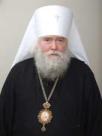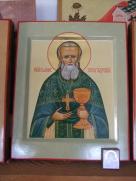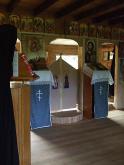Monday, November 10, 2014
The Fathers on TRIALS and TEMPTATIONS
Destroy temptations and thoughts - and there will not be a single saint. The one who runs away from temptations runs from eternal life. This is why one of the Saints says: “Who gave the Holy Martyrs their crowns, if not their tormentors? Who gave St Stephen such glory, if not those who stoned him? He adds a saying from another Saint, who said: “I do not blame those who persecute me, instead, I call them my benefactors; and I do not reject the Doctor of souls, who gives my vain soul the medicine of dishonour, because I am afraid that He should say even to my soul: “We would have healed Babylon, but she is not healed” (Jeremiah 51:9); and again: “how often would I have gathered thy children together, as a hen doth gather her brood under her wings, and ye would not! Behold, your house is left unto you desolate” (Luke 13:34-35)
Venerable Zosima, who revealed the glory of St Mary of Egypt, 5th century
Suffering deliberately embraced cannot free the soul totally from sin unless the soul is also tried in the fire of suffering that comes unchosen. For the soul is like a sword: If it does not go “through fire and water” (Psalm 66:12 (LXX)) - that is, through suffering deliberately embraced and suffering that comes unchosen, - it cannot but be shattered by the blows of fortune.
Ilias the Presbyter, ?7th century
Just as sick people need surgery and cautery to recover the health they have lost, so we need trials, and toils of repentance, and fear of death and punishment, so that we may regain our former health of soul and shake off the sickness which our folly has induced. The more suffering, the more we should thank Him for His compassion and accept the suffering joyfully. For it is to help us that He increases our tribulation, both through the sufferings we willingly embrace in our repentance and through the trials and punishments not subject to our will. In this way, if we voluntarily accept affliction, we will be freed from our sickness and from the punishments to come, and perhaps even from present punishments as well. Even if we are not grateful, our Physician in His grace will still heal us, although by means of chastisement and manifold trials. But if we cling to our disease and persist in it, we will deservedly bring upon ourselves agelong punishment. We will have made ourselves like the demons and so will justly share with them the agelong punishments prepared for them; for, like them, we will have scorned our Benefactor.
St Peter of Damaskos, 11th century





